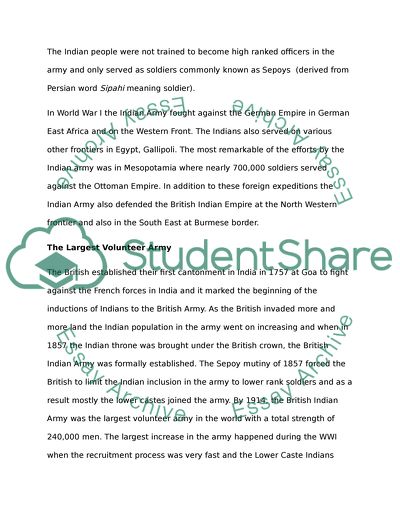Cite this document
(“India's Contribution towards the British War Effort in World War I and Research Paper”, n.d.)
Retrieved from https://studentshare.org/family-consumer-science/1414718-india-s-contribution-towards-the-british-war
Retrieved from https://studentshare.org/family-consumer-science/1414718-india-s-contribution-towards-the-british-war
(India'S Contribution towards the British War Effort in World War I and Research Paper)
https://studentshare.org/family-consumer-science/1414718-india-s-contribution-towards-the-british-war.
https://studentshare.org/family-consumer-science/1414718-india-s-contribution-towards-the-british-war.
“India'S Contribution towards the British War Effort in World War I and Research Paper”, n.d. https://studentshare.org/family-consumer-science/1414718-india-s-contribution-towards-the-british-war.


